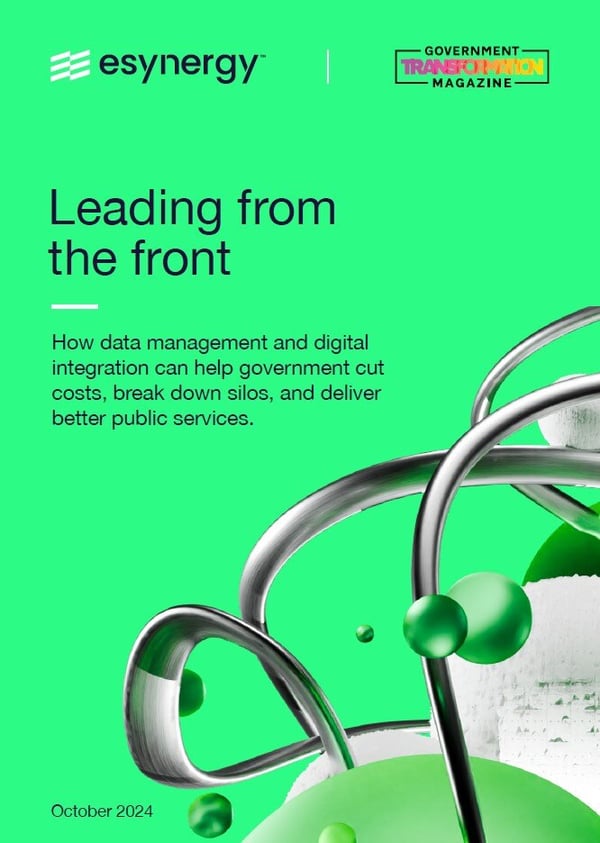Data-driven decision-making: Craig Suckling on breaking digital barriers
The challenge of transforming siloed data systems into cohesive, actionable insights is one of the biggest obstacles to modernising the public sector.
Craig Suckling, UK Government Chief Data Officer, has been a leading voice in addressing these challenges, advocating for a unified approach to data and digital transformation.
 In his assessment, Suckling emphasises the progress made in data integration, pointing to initiatives like the 'Tell Us Once' service, which allows citizens to report a death to multiple departments in one go.
In his assessment, Suckling emphasises the progress made in data integration, pointing to initiatives like the 'Tell Us Once' service, which allows citizens to report a death to multiple departments in one go.
This system exemplifies how data sharing can radically improve citizen experience. Suckling also highlights advancements such as the GOV.UK One Login, now used by four million citizens, and the ambitious target of moving 35% of government services to the cloud by 2030.
However, while these milestones represent significant progress, Suckling is candid about the limitations that remain. "The biggest impediment to delivering cross-government collaboration and increasing productivity is the sharing of data," he states, pointing to ongoing struggles with departmental silos and a lack of foundational data infrastructure.
Suckling's insights are featured within a recent report produced by Government Transformation Magazine, in partnership with esynergy, which interviewed 100 public sector leaders about the state of data and digital integration. The report revealed:
- 79% of respondents cited the perceived or actual burden of data sharing as a barrier to collaboration.
- Only 13% of organisations have a Chief Data Officer at the executive level, indicating a lack of centralised leadership for data functions.
- 74% reported insufficient resources for effective data sharing, exacerbating silos and inefficiencies.
Despite these barriers, 63% of civil servants rated their department's data integration efforts at seven out of ten or higher, demonstrating a sense of optimism about the potential of data to drive public sector transformation.
Suckling and other experts advocate for a shift toward technologies and strategies that prioritise interoperability over individual departmental goals.
As Suckling puts it, "Data and digital are meaningless unless you’re matching them to actual user priorities."
With public sector spending on digital initiatives surpassing £8 billion, Suckling stresses the importance of building on a "common bedrock of data foundations" to ensure every pound invested delivers measurable value. Initiatives like cross-departmental data governance frameworks and shared platforms are key to overcoming the current fragmentation.
The report - Using Data and Digital Integration to Cut Costs and Improve Public Services - underscores the importance of leadership, collaboration, and strategic investment in breaking down barriers to data sharing.
As the government continues to build its data capabilities, the emphasis on collaboration and citizen-centric outcomes will be critical.
"We must move beyond talking about data’s value and start demonstrating it through integrated, efficient, and transformative public services," Suckling concludes.






